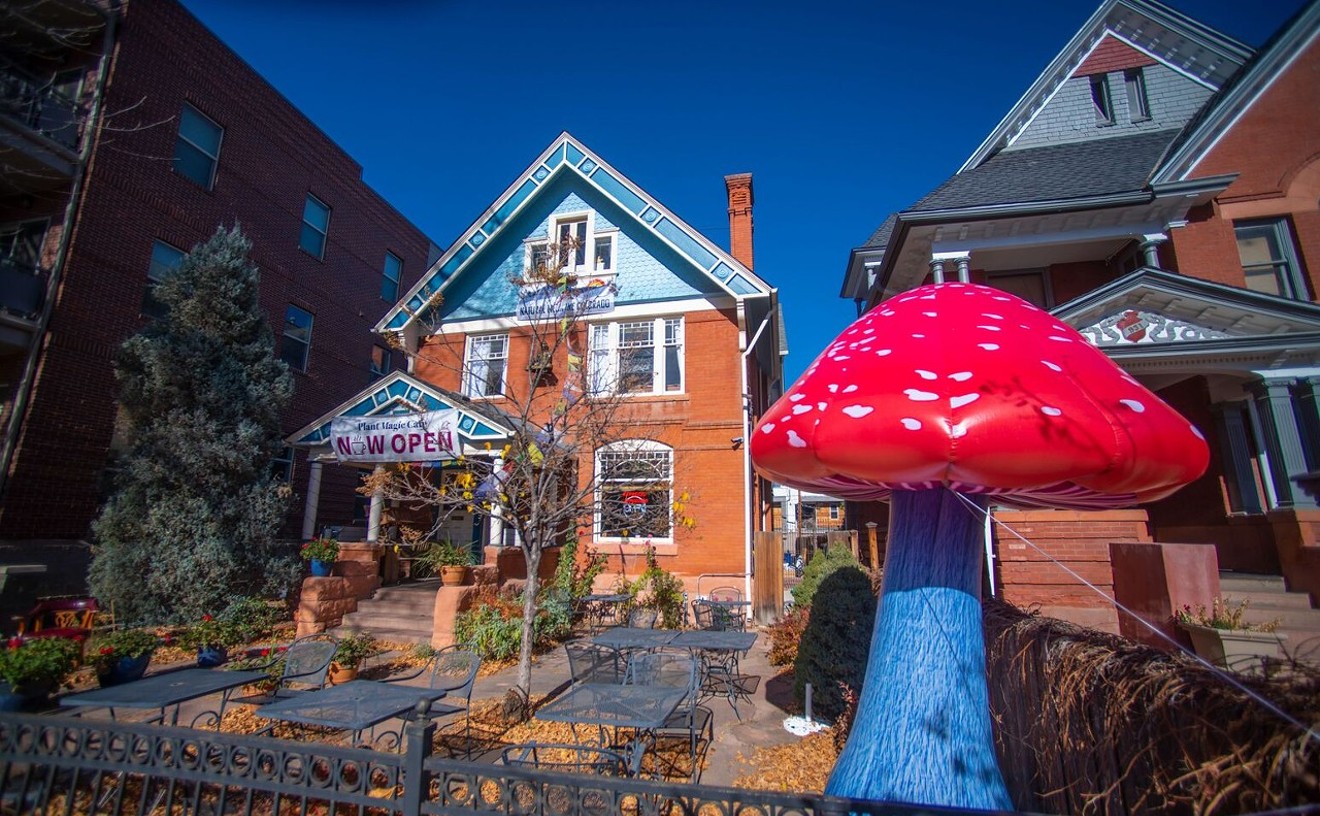Governor Jared Polis's nominations for the Natural Medicine Advisory Board were approved by the Colorado Senate on March 17. The new panel will soon get to work developing rules and regulations for psychedelics in the state.
The board was created as part of Proposition 122, or the Natural Medicine Health Act, which voters approved last fall, decriminalizing personal psilocybin use while also paving the way for legal and licensed medical psilocybin healing centers, but not retail sales.
Fifteen proposed members, comprising representatives from Colorado's mental health, psychedelic advocacy, Indigenous, health care and law enforcement communities, were chosen from a pool of 226 applicants. They all received initial approval from the state Senate Finance Committee on March 14, and then unanimous approval from the full senate on March 17.
"In short, Colorado will be the second state to develop a regulatory program for the facilitation of psilocybin at state-regulated healing centers, with additional considerations at a later date," Colorado Department of Regulatory Agencies (DORA) director Patty Salazar told the Senate committee on March 14. "Our core mission is to protect consumers, establish a marketplace where responsible professionals and business can thrive, and create an equitable environment for all Coloradans."
While Oregon was the first state to legalize psilocybin treatment, Colorado also decriminalized DMT, ibogaine and mescaline, which will be evaluated by DORA and the Natural Medicine Advisory Board for potential legalization in 2026. Long before that, however, the board will be working on psilocybin framework suggestions, which are due by September of this year, with psilocybin healing centers set to open in 2024.
Here are the approved members of the new Natural Medicine Advisory Board:
Dr. Clarissa Pinkola Estés
A post-trauma recovery specialist for 53 years, Dr. Clarissa Pinkola Estés has helped American combat soldiers recover from five different wars, has served on a number of state and university boards for mental health, and was a post-trauma specialist for surviving families of the 9/11 and Columbine High School tragedies. She told the Senate committee that she wanted to join the board to protect the "safety, science, sanity and the sacred to the rollout of the natural medicines." A daughter of Native American and Spanish parents, Pinkola Estés is married to an Air Force veteran and has a son who is a Black police officer. (She also once won a Westword short-short story contest!)
"Parity is really important in all of these, and we've learned a great deal as a result of the rollout of marijuana in the state of Colorado," Pinkola Estés told lawmakers. "We have a really good view into where disparities exist in our world that we live in, just as a familia, let alone out in public."
Pueblo County Sheriff David Lucero
Pueblo County Sheriff David Lucero wants to serve on the board to provide a "lens of public safety," drawing from his 23 years of experience in law enforcement. He presides over Pueblo County, where illicit marijuana cultivations increased after recreational pot was legalized in late 2012, and recognizes new forms of gray and black market activity. "I come from the background of looking at some of the unintended consequences that we had with the legalization of marijuana," Lucero told the committee.
Aspen City Councilman Skippy Upton Mesirow
A member of Aspen City Council since 2019, Skippy Mesirow was pushing local legislation in Aspen to decriminalize psilocybin, "but Prop 122 beat us to the punch," he told the committee. Mesirow is the founder of the Elected Leaders Collective, an organization that helps elected officials with mental health and well-being issues. As someone who's had "profound" personal experiences with psychedelics in his mental health therapy, Mesirow wants to serve on the committee in order to offer more mental health options for all Coloradans as well as people who live in the Roaring Fork Valley, which has a higher suicide rate than the national average.
Attorney Katina Banks
Denver attorney Katina Banks has been practicing law for nearly 25 years, dedicating much of that time to civil rights and social equity laws. She served eight years on the Colorado Civil Rights Commission and currently sits on the Colorado Supreme Court Nominations Commission; she believes her experience on state commissions will help move the process along. "This role requires some experience serving on boards, understanding the legal framework we're trying to create, and understanding the role of the advisory board within that framework that's been established by the Natural Medicine Health Act," she said in the first confirmation hearing.
Prowers County Commissioner Wendy Buxton-Andrade
Prowers County Commissioner Wendy Buxton-Andrade is also an addiction and detox specialist. While she told the committee that she understands the benefits of natural medicine, she's worried about younger generations "normalizing the use of psychedelics," she told the committee. On the board, she'll provide a rural perspective, and a possible push for stricter regulations. "As elected officials, we need to make sure that we regulate natural medicine just as we do pharmaceuticals, because they can be equally dangerous to our communities and, most important, to our constituents," she said during her testimony.
Ricardo Baca
Former journalist Ricardo Baca, a thirteen-year veteran of the Denver Post and the newspaper's first cannabis editor, now owns a cannabis and psychedelics marketing agency. Passionate about drug policy and traditional indigenous use of psychedelics, Baca applied to be on the board in order to impart his experience with cannabis policy and take advantage of a new career that no longer requires sitting on the civic sidelines. "I am excited to hopefully play a role in public service for my first time, because this was something I could never do as a journalist," Baca told the Senate committee.
Dr. Sue Sisley
Arizona primary care doctor Sue Sisley is the only member of the board who doesn't live in Colorado, but she's also the only member of the board who has a DEA license to grow psilocybin mushrooms for clinical trials. A longtime cannabis researcher who's experienced with juggling groundbreaking drug research with strict federal research rules, Sisley told senators that she'll offer up information she gathers during her psilocybin studies, and has already learned about psilocybin potency and shelf-stability. "We grow a dozen different strains of psilocybin mushrooms in our lab. We collaborate with everyone from underground growers and legacy farmers all the way to university mycologists and analytical chemists," Sisley told the committee via virtual testimony.
Attorney Billy Wynne
Greenwood Village attorney Billy Wynne has worked on policy councils for the U.S. Senate, as well as with groups formulating federal and state health codes. He was also the co-owner of Awake, a former sober bar in Denver, and owns a consulting business, Wynne Health Group. Wynne told the committee that he "sees great promise" in the potential of psychedelic treatment for mental and behavioral health, but added that he wants to see it done safely.
Dr. Alisa Hannum
A clinical psychologist for a dozen years, Dr. Alisa Hannum works in Colorado Springs, largely with veterans suffering from depression, PTSD and sexual trauma. She's a believer in evidence-based psilocybin treatment, and told lawmakers that she is "passionate about ensuring that the program outlined in Proposition 122 be delivered in a way that will ensure safety, efficacy and inclusive access for the citizens of Colorado."
Dr. Ernestine "Tina" Gonzales
Tina Gonzales, a resident of Colorado Springs, told the committee that she wanted to join the board in order to represent rural medical patients and cultural health-care choices. A previous member of state criminal justice and prisoner mental health boards, Gonzales believes that psychedelics "can help alleviate some of the stress" that is currently placed on American health care, but cautioned lawmakers that "what works in Denver County does not work in rural Colorado."
Dr. Heather "Lundy" Nelson
An advocate for equitable health-care access and services for the LGBTQ+ community, Lundy Nelson wanted to join the board to help make sure Colorado does "not repeat inequities in a nascent industry." Nelson is a licensed mental health counselor and natural medicine entrepreneur, and currently runs a nonprofit that has provided over 40,000 free therapy sessions across Colorado.
Dr. Joshua Goodwin
Joshua Goodwin spent over twenty years in the military, and the Aurora doctor said he went through his "own mental health journey" after suffering both mental and physical combat wounds during his time overseas. Goodwin says he wants to put his veteran's perspective to use on the psychedelic board, and believes that psilocybin therapy can become one of several treatment options for people suffering from depression and PTSD. "We're all different," he told the committee.
Dr. Sofia Chavez
A doctor practicing natural medicine in Lakewood, Sofia Chavez learned about the Indigenous use of psychedelics from medicine men and women on trips to Native American reservations with her Navajo father. During her time on the board, Chavez said she wants to "support the indigenous voice and to support the voice of those in communities of depression" and ensure that psychedelic health care and policy will respect cultural practices.
William Dunn
Eagle County Paramedics chief clinical officer William Dunn has been in the emergency medical field for over thirty years, with experience crafting emergency medical policy within the Colorado Department of Health. Dunn played a role in the research and development of intranasal naloxone, a treatment for opioid overdoses, in the early 2000s, and believes that psychedelics could have similar, "far-reaching effects" in addiction therapy. "I want to be on the ground floor of something going on," he told senators. "I'm also tired of going to funerals."
Dr. Bradley Conner
A professor at Colorado State University for over a decade, Bradley Conner is now the director of addiction counseling at CSU and a licensed psychologist. Conner has developed training for addiction specialists and other mental health providers, and says he's spent much of the last decade studying the impact of cannabis legalization. "I think that many of the things were done well, [but] I've seen places where we could've done better, which is one of the primary reasons why I applied to be on the board," he said.
[
{
"name": "Air - MediumRectangle - Inline Content - Mobile Display Size",
"component": "12017618",
"insertPoint": "2",
"requiredCountToDisplay": "2",
"watchElement": ".fdn-content-body",
"astAdList": [
{
"adType": "rectangle",
"displayTargets": "mobile"
}
]
},{
"name": "Editor Picks",
"component": "17242653",
"insertPoint": "4",
"requiredCountToDisplay": "1",
"watchElement": ".fdn-content-body",
"astAdList": [
{
"adType": "rectangle",
"displayTargets": "desktop|tablet"
},{
"adType": "rectangle",
"displayTargets": "desktop|tablet|mobile"
}
]
},{
"name": "Inline Links",
"component": "18838239",
"insertPoint": "8th",
"startingPoint": 8,
"requiredCountToDisplay": "7",
"maxInsertions": 25
},{
"name": "Air - MediumRectangle - Combo - Inline Content",
"component": "17261320",
"insertPoint": "8th",
"startingPoint": 8,
"requiredCountToDisplay": "7",
"maxInsertions": 25,
"watchElement": ".fdn-content-body",
"astAdList": [
{
"adType": "rectangle",
"displayTargets": "desktop|tablet"
},{
"adType": "rectangle",
"displayTargets": "desktop|tablet|mobile"
}
]
},{
"name": "Inline Links",
"component": "18838239",
"insertPoint": "8th",
"startingPoint": 12,
"requiredCountToDisplay": "11",
"maxInsertions": 25
},{
"name": "Air - Leaderboard Tower - Combo - Inline Content",
"component": "17261321",
"insertPoint": "8th",
"startingPoint": 12,
"requiredCountToDisplay": "11",
"maxInsertions": 25,
"watchElement": ".fdn-content-body",
"astAdList": [
{
"adType": "leaderboardInlineContent",
"displayTargets": "desktop|tablet"
},{
"adType": "tower",
"displayTargets": "mobile"
}
]
}
]












